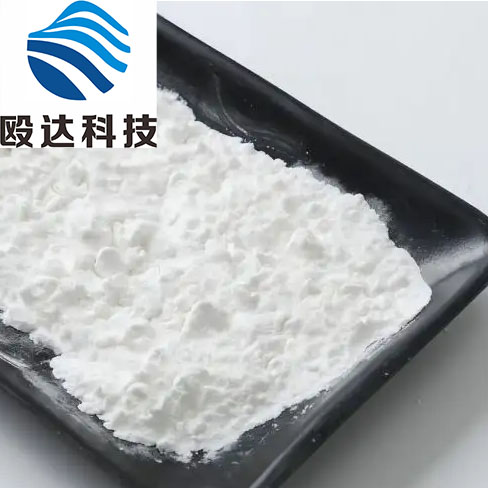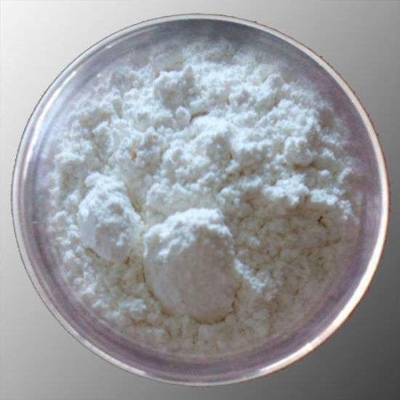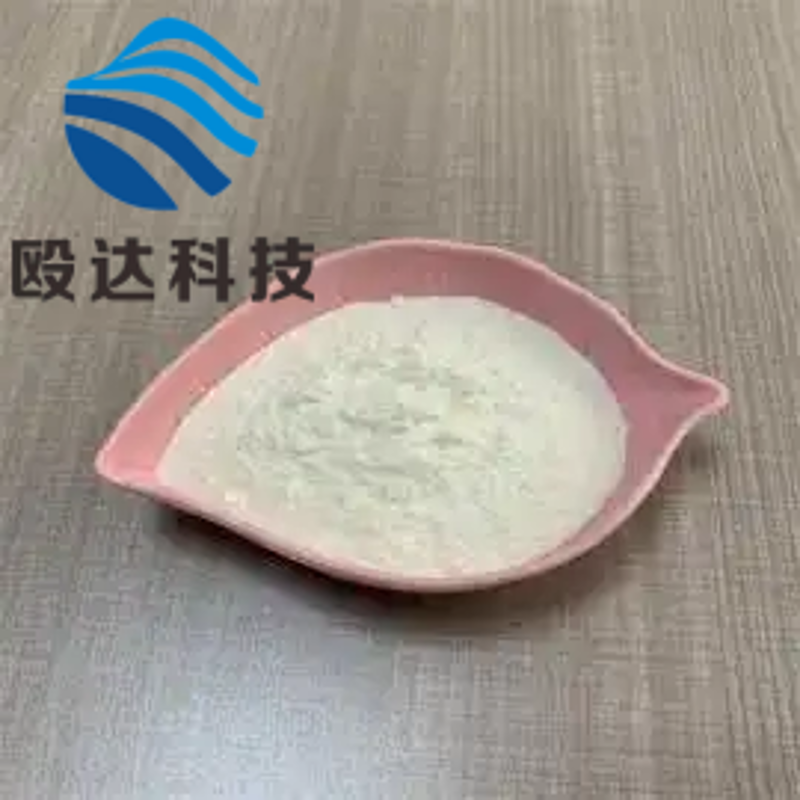-
Categories
-
Pharmaceutical Intermediates
-
Active Pharmaceutical Ingredients
-
Food Additives
- Industrial Coatings
- Agrochemicals
- Dyes and Pigments
- Surfactant
- Flavors and Fragrances
- Chemical Reagents
- Catalyst and Auxiliary
- Natural Products
- Inorganic Chemistry
-
Organic Chemistry
-
Biochemical Engineering
- Analytical Chemistry
- Cosmetic Ingredient
-
Pharmaceutical Intermediates
Promotion
ECHEMI Mall
Wholesale
Weekly Price
Exhibition
News
-
Trade Service
The efficacy/safety comparison between a wide range of weight-loss drugs finally has higher-quality evidence
.
Recently, the team of Professor Li Sheyu from the Department of Endocrinology and Metabolism, West China Hospital of Sichuan University, published the results of a net-like meta-analysis of the efficacy of weight-loss drugs in The Lancet[1]
.
Research suggests that compared with life>
.
Among the many GLP-1 receptor agonists, smeglutide is the most effective choice
.
The use of naltrexone-bupropion, phentermine-topiramate, GLP-1 receptor agonist, orlistat is associated with a significant increase in the incidence of adverse events leading to discontinuation
.
The study conducted a network meta-analysis of more than 100 randomized controlled trials around the world, completed direct and indirect comparisons of different weight loss drugs, and summarized detailed evidence of the benefits and risks associated with drug treatment for overweight and obese patients before March 23, 2021 , Can provide valuable reference for the choice of clinical weight loss drugs
.
Article title: Overweight and obesity and their complications plague people around the world [2].
In addition to affecting body size, obesity is also related to various health problems such as type 2 diabetes, cardiovascular disease, depression, and malignant tumors [3-4]
.
Life>
.
Weight loss drugs are alternatives and supplements to life>
.
But what is the difference in efficacy/risk of different drugs? This is a clinically significant question that is not easy to answer
.
Considering that there may be a lack of direct randomized controlled trial comparisons between different types of drugs, Professor Li Sheyu’s team adopted a network meta-analysis method to conduct a meta-analysis of previously published randomized controlled trials that studied the effects of weight-loss drugs in overweight and obese patients.
, And then realize the direct and indirect comparison of the efficacy and safety of different weight-loss drugs
.
The percentage of weight loss is the outcome.
The existing drug-drug/drug-life>
.
In the end, a total of 49810 subjects were included in the analysis.
The median age was 47 years old, the proportion of women was 75%, the median baseline BMI was 35.
3, and the median follow-up time was 24 months
.
The researchers compared the percentage change of the patient’s weight compared to the baseline weight after treatment under different intervention therapies.
At the same time, the outcome was a weight loss of ≥5% and a weight loss of ≥10%, and different drugs/life>
.
When the percentage of weight loss was used as the outcome, all drugs except L-carnitine had significant weight loss effects relative to life>
.
Phentermine-topiramate (weight change percentage: -7.
97, 95% CI: -9.
28-6.
66) and GLP-1 receptor agonists (weight change percentage: -5.
76, 95% CI: 6.
30-5.
21) are the most effective The best two
.
Phentermine-topiramate and GLP-1 receptor agonists are also far ahead when weight loss is 5% and 10% as the outcome
.
The benefit/risk comparison between different drugs has improved the quality of life scores after some drug treatments, but the effect is relatively small
.
The analysis of adverse outcomes indicated that the use of naltrexone-bupropion, phentermine-topiramate, GLP-1 receptor agonist, and orlistat was significantly associated with an increase in the incidence of adverse events leading to discontinuation
.
The use of naltrexone-bupropion, GLP-1 receptor agonist, metformin, orlistat, and phentermine-topiramate was significantly associated with an increase in the incidence of gastrointestinal adverse events
.
Phentermine-topiramate can reduce an additional 7.
97% of body weight on the basis of the benefits of life>
.
GLP-1 receptor agonists also have a similar but slightly weaker weight loss effect
.
For every 1,000 person-years, 61 people discontinue the drug because they cannot tolerate the adverse effects of phentermine-topiramate, which is 52 for GLP-1 receptor agonists
.
Most weight-loss drugs also bring additional gastrointestinal side effects, with naltrexone-bupropion the most common
.
The absolute effect comparison of the benefits/risks of weight-loss drugs After the classification of GLP-1 receptor agonists was refined, the researchers found that smegaglutide was the option with the greatest benefit and moderate risk
.
As for whether the drug can improve the metabolism-related parameters such as glycosylated hemoglobin, low-density lipoprotein, and systolic blood pressure, after the summary of this study, it is found that the level of evidence is low/very low, which cannot provide convincing evidence of benefit
.
Comparison of the absolute benefits/risk effects of different GLP-1 receptor agonists.
The value of this study is that it is the most comprehensive and in-depth comprehensive evaluation of the benefits and risks of weight-loss drugs in overweight/obese patients so far.
Through multidisciplinary teamwork at the national level, we selected valuable clinical research questions and clinical outcomes that patients care about, and designed a thorough and comprehensive subgroup analysis
.
This study also uses the latest evidence-based medicine methods and frameworks to obtain the absolute effects of the benefits/risks of different drugs, ensuring the feasibility and effectiveness of the evidence used in clinical practice
.
In addition to providing valuable clinical evidence, this study also has certain limitations, such as: lack of individual-level patient data; some studies did not report the percentage change in weight compared to the baseline, and the estimated results may cause some bias; different studies There are also certain differences in population characteristics and follow-up years; on November 16, 2021, "The Lancet" published an exciting randomized controlled trial result of the new weight-loss drug canagliptaide [9], due to publication date Cannot be included in this meta-analysis later; but overall, the flaws are not concealed
.
The struggle between humans and obesity continues.
Although the existing arsenal is already substantial, more ideal drugs and therapies still need to be explored continuously.
The constantly updated summary and meta-analysis will also effectively help clinical practice and benefit more deeply.
Patients who are overweight/obese and their complications
.
What kind of drugs/therapies will be the ultimate "game changer"? References [1] Shi Q, Wang Y, Hao Q, et al.
Pharmacotherapy for adults with overweight and obesity: a systematic review and network meta-analysis of randomised controlled trials [published online ahead of print, 2021 Dec 8].
Lancet .
2021;S0140-6736(21)01640-8.
doi:10.
1016/S0140-6736(21)01640-8[2] NCD Risk Factor Collaboration (NCD-RisC).
Trends in adult body-mass index in 200 countries from 1975 to 2014: a pooled analysis of 1698 population-based measurement studies with 19·2 million participants [published correction appears in Lancet.
2016 May 14;387(10032):1998].
Lancet.
2016;387(10026):1377- 1396.
doi:10.
1016/S0140-6736(16)30054-X[3] Garvey WT, Mechanick JI, Brett EM, et al.
.
Recently, the team of Professor Li Sheyu from the Department of Endocrinology and Metabolism, West China Hospital of Sichuan University, published the results of a net-like meta-analysis of the efficacy of weight-loss drugs in The Lancet[1]
.
Research suggests that compared with life>
.
Among the many GLP-1 receptor agonists, smeglutide is the most effective choice
.
The use of naltrexone-bupropion, phentermine-topiramate, GLP-1 receptor agonist, orlistat is associated with a significant increase in the incidence of adverse events leading to discontinuation
.
The study conducted a network meta-analysis of more than 100 randomized controlled trials around the world, completed direct and indirect comparisons of different weight loss drugs, and summarized detailed evidence of the benefits and risks associated with drug treatment for overweight and obese patients before March 23, 2021 , Can provide valuable reference for the choice of clinical weight loss drugs
.
Article title: Overweight and obesity and their complications plague people around the world [2].
In addition to affecting body size, obesity is also related to various health problems such as type 2 diabetes, cardiovascular disease, depression, and malignant tumors [3-4]
.
Life>
.
Weight loss drugs are alternatives and supplements to life>
.
But what is the difference in efficacy/risk of different drugs? This is a clinically significant question that is not easy to answer
.
Considering that there may be a lack of direct randomized controlled trial comparisons between different types of drugs, Professor Li Sheyu’s team adopted a network meta-analysis method to conduct a meta-analysis of previously published randomized controlled trials that studied the effects of weight-loss drugs in overweight and obese patients.
, And then realize the direct and indirect comparison of the efficacy and safety of different weight-loss drugs
.
The percentage of weight loss is the outcome.
The existing drug-drug/drug-life>
.
In the end, a total of 49810 subjects were included in the analysis.
The median age was 47 years old, the proportion of women was 75%, the median baseline BMI was 35.
3, and the median follow-up time was 24 months
.
The researchers compared the percentage change of the patient’s weight compared to the baseline weight after treatment under different intervention therapies.
At the same time, the outcome was a weight loss of ≥5% and a weight loss of ≥10%, and different drugs/life>
.
When the percentage of weight loss was used as the outcome, all drugs except L-carnitine had significant weight loss effects relative to life>
.
Phentermine-topiramate (weight change percentage: -7.
97, 95% CI: -9.
28-6.
66) and GLP-1 receptor agonists (weight change percentage: -5.
76, 95% CI: 6.
30-5.
21) are the most effective The best two
.
Phentermine-topiramate and GLP-1 receptor agonists are also far ahead when weight loss is 5% and 10% as the outcome
.
The benefit/risk comparison between different drugs has improved the quality of life scores after some drug treatments, but the effect is relatively small
.
The analysis of adverse outcomes indicated that the use of naltrexone-bupropion, phentermine-topiramate, GLP-1 receptor agonist, and orlistat was significantly associated with an increase in the incidence of adverse events leading to discontinuation
.
The use of naltrexone-bupropion, GLP-1 receptor agonist, metformin, orlistat, and phentermine-topiramate was significantly associated with an increase in the incidence of gastrointestinal adverse events
.
Phentermine-topiramate can reduce an additional 7.
97% of body weight on the basis of the benefits of life>
.
GLP-1 receptor agonists also have a similar but slightly weaker weight loss effect
.
For every 1,000 person-years, 61 people discontinue the drug because they cannot tolerate the adverse effects of phentermine-topiramate, which is 52 for GLP-1 receptor agonists
.
Most weight-loss drugs also bring additional gastrointestinal side effects, with naltrexone-bupropion the most common
.
The absolute effect comparison of the benefits/risks of weight-loss drugs After the classification of GLP-1 receptor agonists was refined, the researchers found that smegaglutide was the option with the greatest benefit and moderate risk
.
As for whether the drug can improve the metabolism-related parameters such as glycosylated hemoglobin, low-density lipoprotein, and systolic blood pressure, after the summary of this study, it is found that the level of evidence is low/very low, which cannot provide convincing evidence of benefit
.
Comparison of the absolute benefits/risk effects of different GLP-1 receptor agonists.
The value of this study is that it is the most comprehensive and in-depth comprehensive evaluation of the benefits and risks of weight-loss drugs in overweight/obese patients so far.
Through multidisciplinary teamwork at the national level, we selected valuable clinical research questions and clinical outcomes that patients care about, and designed a thorough and comprehensive subgroup analysis
.
This study also uses the latest evidence-based medicine methods and frameworks to obtain the absolute effects of the benefits/risks of different drugs, ensuring the feasibility and effectiveness of the evidence used in clinical practice
.
In addition to providing valuable clinical evidence, this study also has certain limitations, such as: lack of individual-level patient data; some studies did not report the percentage change in weight compared to the baseline, and the estimated results may cause some bias; different studies There are also certain differences in population characteristics and follow-up years; on November 16, 2021, "The Lancet" published an exciting randomized controlled trial result of the new weight-loss drug canagliptaide [9], due to publication date Cannot be included in this meta-analysis later; but overall, the flaws are not concealed
.
The struggle between humans and obesity continues.
Although the existing arsenal is already substantial, more ideal drugs and therapies still need to be explored continuously.
The constantly updated summary and meta-analysis will also effectively help clinical practice and benefit more deeply.
Patients who are overweight/obese and their complications
.
What kind of drugs/therapies will be the ultimate "game changer"? References [1] Shi Q, Wang Y, Hao Q, et al.
Pharmacotherapy for adults with overweight and obesity: a systematic review and network meta-analysis of randomised controlled trials [published online ahead of print, 2021 Dec 8].
Lancet .
2021;S0140-6736(21)01640-8.
doi:10.
1016/S0140-6736(21)01640-8[2] NCD Risk Factor Collaboration (NCD-RisC).
Trends in adult body-mass index in 200 countries from 1975 to 2014: a pooled analysis of 1698 population-based measurement studies with 19·2 million participants [published correction appears in Lancet.
2016 May 14;387(10032):1998].
Lancet.
2016;387(10026):1377- 1396.
doi:10.
1016/S0140-6736(16)30054-X[3] Garvey WT, Mechanick JI, Brett EM, et al.







